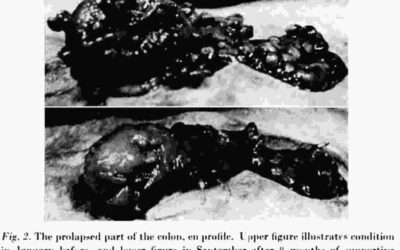What is it?
In this article we will talk about the cultivated Nigella: Nigella Sativa, also called black cumin, not to be confused with Nigella damascena.
It is part of the Renonculaceae family, that is generally toxic.
It is native to Eastern Europe and South Asia but grows in other parts of Europe and also in North Africa.
The seeds are rich in fatty acids and the oil is extracted for culinary and medicinal uses. More than 50% of the oil is composed of polyunsaturated fatty acids, which makes the oil fragile and easily oxidized. It goes rancid quickly, so it must be kept in the refrigerator in an opaque bottle. For more information on vegetable oils, read my article.
It contains an essential oil which most important active components are Thymoquinone, Thymohydroquinone and Thymol.
The essential oil also contains dihydrothymoquinone, p-cymene (found in cumin), carvacrol (found in oregano and thyme), thujene (found in savory), thymol (in thyme and oregano), α-pinene, β-pinene (in pine trees), and anethole (in anise).
Thymoquinone is the most abundant and the most potent phytochemical in Nigella: it is antioxidant, anti-inflammatory, antihistaminic, antibacterial, anticancer, both in vitro and in vivo.
According to animal studies, its antioxidant properties help protect organs such as the heart, the liver and the kidneys.
Thymoquinone also has analgesic and anti-convulsant properties.
Black cumin also contains saponosides, which can irritate the digestive mucosa when ingested in high doses, and alkaloids which can also be toxic in high doses.
Nigella throughout history
It was used in ancient Egypt as a remedy for lung diseases. It is a use that has been kept nowadays. It was also used to help digestion after heavy meals. Black seed oil was also used by the Egyptians for skin problems.
Black cumin is found in the writings of Dioscorides and Galen, two famous physicians (Greek and Roman, respectively), for various health problems such as headaches and dental pain.
It is used in Arab medicine: the prophet Mohamed said that black cumin is a remedy for all ailments except death! It is almost considered a panacea.
In his writings, Avicenna, the famous Arab physician, mentions black cumin to stimulate the energy of the body and to help the person to recover from fatigue. He also recommends the powdered seeds in inhalation to clear the bronchial tubes. We find here again the properties for the lungs, one of the specialties of the plant.
Properties
We will see that it has a lot of medicinal properties, that is why it is considered as a panacea in some cultures. We will list here its most remarkable properties:
IT IS PROTECTIVE OF THE RESPIRATORY SYSTEM
A study reviewed all the research done on black cumin since 1993 until 2018, mainly clinical studies that focus on the benefits of black cumin on the respiratory system.
The conclusion is that it is an effective remedy for respiratory diseases of allergic nature, obstructive nature such as emphysema or any other type of respiratory disease.
It has anti-histamine properties and acts as a bronchodilator. It is helpful for allergic asthma in particular. This anti-allergic poperty is one of the specialities of the plant. It is effective in preventing asthma attacks.
A study made on guinea pigs even shows that black cumin has a protective effect against mustard gas on the lungs, which is quite exceptional!
IT IS ANTIFUNGAL AND ANTIBIOTIC
Researchers have studied the potency of black cumin oil against bacteria resistant to amoxicillin, gatifloxacin and tetracycline.
Out of 144 strains tested, most of them resistant to a number of antibiotics, 97 were inhibited by black cumin oil.
It can be compared to oregano oil for its antibiotic potency.
Black seed oil is particularly effective against Pseudomonas aeruginosa and Staphylococcus aureus, mainly because of its 3 main phytochemicals: thymoquinone (TQ), thymohydroquinone (THQ) and thymol.
Published in the Egyptian Journal of Biochemistry & Molecular Biology, the scientists tested thymol, TQ and THQ against 30 human pathogens and were surprised to discover that :
- Each compound showed 100% inhibition for the thirty pathogens evaluated.
- Thymoquinone was the best antifungal compound against all dermatophytes tested and yeasts, followed by thymohydroquinone and thymol.
- Thymol was the best antifungal against molds followed by TQ and THQ.
Black cumin oil is therefore particularly interesting for people suffering from fungal infections, whether intestinal such as candida albicans overgrowth or cutaneous infections such as athlete’s foot or herpes circinis.
Among the Gram-positive bacteria tested, Staphylococcus aureus, S. epidermidis, other coagulase-negative staphylococci and Streptococcus pyogenes were sensitive to the oil, while Enterococcus faecalis and Streptococcus agalactiae were resistant.
Of the Gram-negative bacteria tested, only Pseudomonas aeruginosa was sensitive to oil and the others (Acinetobacter baumannii, Citrobacter freundii, Klebsiella pneumoniae, Proteus mirabilis, P. vulgaris and Vibrio cholerae) were insensitive.
Methicillin-resistant staphylococcus aureus (MRSA) is rampant in hospitals and nursing homes around the world as common staph infections become resistant to generic antibiotics.
Pakistani scientists took several strains of MRSA and found that each was susceptible to N. sativa, proving that black cumin oil can help slow or prevent MRSA from spreading out of control.
IT IS ANTIVIRAL
In in vitro studies, the antiviral properties of N. sativa on different viruses have been documented in the literature:
- N. sativa oil suppresses the viral load of murine cytomegalovirus in infected mice to an undetectable level.
- N. sativa honey inhibits HIV-1 replication.
- N. sativa had virucidal activity against herpes simplex and hepatitis A virus infections.
- N. sativa decreased coronavirus load in infected HeLa cells by stimulating interleukin 8 secretion and down-regulating the expression of transient receptor potential (TRP) genes such as TRPM6, TRPA1, TRPC4 and TRPM7.
- N. sativa inhibited the growth of H5N1 influenza virus in vitro.
With respect to in vivo studies:
- In a human clinical study, patients with hepatitis C virus infection showed significant improvement in hepatitis C virus viral load after 3 months of treatment with N. sativa.
- A case report of treatment with N. sativa for 6 months showed sustained seroreversion in a 46-year-old HIV patient and has also been reported in 6 other HIV cases.
COVID 19:
At least 8 in silico studies have shown that some N. sativa compounds, including nigelledin, α-hederin, hederagenin, thymohydroquinone, and thymoquinone, have high to moderate affinity for SARS-CoV-2 enzymes and proteins.
These compounds can potentially inhibit SARS-CoV-2 replication and attachment to host cell receptors.
For covid, nigelledine was better than hydroxychloroquine and favipiravir:
Nigelledine, an alkaloid from N. sativa, docked to active sites 6LU7 showed an energy complex score close to chloroquine and better than hydroxychloroquine and favipiravir.
The α-Hederin, a saponin from N sativa, docked to the 2GTB active sites showed an energy score better than chloroquine, hydroxychloroquine and favipiravir.
Therefore, some natural compounds found in N. sativa such as nigellidin, α-hederin, hederagenin, thymohydroquinone and thymoquinone were potentially active compounds that could inhibit coronavirus.
IT IS HYPOGLYCEMIC
It can lower blood sugar: it restores the cells’ sensitivity to insulin, which is excellent for pre-diabetes or type 2 diabetes. Nigella does not seem to induce the pancreas to produce more insulin, which is a good thing in the case of type 2 diabetes because in this disease, the pancreas does not have a problem, it functions well; the problem is located at the cellular level with cells that become resistant to insulin.
A study concludes that it « improves glucose tolerance as effectively as metformin, without side effects and with very low toxicity ».
This same study indicates that TQ, which is an oil, is one of its main active constituents but that the anti-diabetic effects were also found using an aqueous extract.
Black cumin reduces glucose absorption in the gut, reduces hepatic gluconeogenesis, reduces blood glucose levels and simulates glucose-induced insulin secretion from pancreatic beta cells.
In a study, researchers from the Indian Council of Medical Research point out that the oil « causes progressive partial regeneration of pancreatic beta cells, increases lowered serum insulin concentrations and decreases elevated serum glucose. »
IT IS ANTI-OXIDANT
It protects the cells against damage caused by oxidative stress.
Thymoquinone acts as a scavenger of free radicals and superoxide radicals, and preserves the activity of various antioxidant enzymes such as catalase, glutathione peroxidase and glutathione-S-transferase.
IT LOWERS TRIGLYCERIDE LEVELS
It regulates the levels of LDL, HDL and especially triglycerides.
Black cumin is considered an effective anti-inflammatory. Since a high level of cholesterol in the blood is caused by chronic inflammation, it makes sense that since black cumin lowers inflammation, it also lowers blood cholesterol.
IT IS EFFECTIVE FOR JOINT PROBLEMS
It is effective for joint problems such as rheumatoid arthritis. In one study, people suffering from polyarthritis took 500 mg of black seed oil twice a day. At these doses, there was an improvement in their symptoms: the joints were less stiff in the morning, less swollen, and the inflammatory markers decreased.
Black seed oil could be efficient for any type of joint inflammation.
IT IS ANTI-CANCER
It has anticancer activities for stomach cancer, lymphoma, sarcoma, liver cancer, pancreatic cancer, breast cancer, brain cancer etc.
Studies show that black cumin not only kills cancer cells but also prevents the development of pancreatic cancer.
The anticancer effects of thymoquinone are mediated through different modes of action, including anti-proliferation, apoptosis induction, cell cycle arrest, ROS generation and anti-metastasis/anti-angiogenesis.
The anti-tumor effects of thymoquinone have also been investigated in tumor xenograft mice models for colon, prostate, pancreatic and lung cancer.
These studies showed a 52% decrease in tumors in mice treated with thymoquinone (TQ) and thymohydroquinone (THQ).
IT IS BENEFICIAL FOR THE SKIN
It relieves eczema and psoriasis.
In a study conducted by Iranian researchers, Nigella was found to be as effective as Betamethasone skin cream in improving the quality of life and reducing the severity of hand eczema.
It also improves the health of hair and nails
IT PROTECTS THE LIVER AND KIDNEYS
Studies show that N. sativa oil supplementation delays disease progression in patients with stage 3 and 4 chronic kidney disease!
IT IS ANTI-ULCER
Animal studies show that it is anti-ulcer and it reduces the activity of H. Pylori.
NEURODEGENERATIVE DISEASES
It has a protective effect against neurodegenerative diseases: Alzheimer, depression, epilepsy, Parkinson.
AND MANY OTHER PROPERTIES…
It is antihypertensive.
The seeds support digestion and help to expel gas.
It is useful for snoring.
It is a renowned dewormer.
In India it is prescribed to women to increase lactation.
It promotes fertility by improving sperm function.
Dosages
The doses used in these studies are generally around 3 to 6 g of black seed oil per day for a 70 kg adult.
The appropriate black seed oil dosage can vary by individual and health status. At this time, there is no standard dosage, but the following dosages by mouth have been studied in scientific research to date:
- For diabetes: 1 gram of black seed powder taken twice a day for up to 12 months.
- For high blood pressure: 0.5–2 grams of black seed powder daily for up to 12 weeks or 100–200 milligrams black seed oil twice daily for eight weeks.
- To improve sperm function: 2.5 mL black seed oil twice daily for two months.
- For asthma: 2 grams of ground black seed taken daily for 12 weeks. Also, 15 mL/kg of black seed extract has been used daily for three months. A single dose of 50–100 mg/kg has also been used.
- In a study made on people suffering from polyarthritis, these people took 500 mg of black cumin oil twice a day, that is 1g per day.
- We know that the effective doses in studies, for inflammatory and allergic conditions for example, are between 40 and 80 mg of oil per kg of weight, so for an adult of 70 kg, that is between 2.8 and 5.6 g per day, about 1 teaspoon.
- For snoring, 1 teaspoon of ground seeds to swallow with a glass of water in the evening or one hour before bedtime.
Of course black cumin must be taken for several weeks to see an improvement of your condition, associated with other herbs to maximize the effects.
The seeds can be ground directly in meals with a coffee grinder. Regarding the doses for the ground seeds, based on studies, we see an improvement around 1 g per day for metabolic problems.
Note that for any use on the skin, it is usually mixed with other oils as it is a bit strong if used pure.
Contraindications
We know that the seeds contains substances that can cause issues when taken in high doses: saponosides can become very irritating, alkaloids can become toxic.
But as always, it is all about the dose. In animal studies, we see that at conventional doses, there is no toxicity. Researchers explain that black cumin has a low toxicity with a wide margin of maneuver in terms of dosage.
In an animal study, we start to see problems in the blood tests with a dose of 2 ml of oil per kg of weight taken for 12 weeks. For a human of 70 kg that would be 140 ml per day, that is a huge amount! As a reminder, the average dosage used was about 3 to 6 ml per day.
- Avoid black cumin if you are pregnant.
- Avoid it if you are breastfeeding. Despite its traditional use to stimulate milk production, the presence of alkaloids could be problematic.
- Do not take black seed oil if you are on anticoagulants as it may alter certain blood parameters.
- Although it is an oil that can be applied to the skin, be aware that there are rare cases of inflammatory skin reactions. As a precaution, apply to a small area first to see if you tolerate it well, and avoid contact with fragile mucous membranes such as the membranes of the eye for example.
- If you suffer from acid reflux, it is possible that this spicy oil would aggravate your symptoms, especially if you are sensitive to anything spicy.
- Note that for any use on the skin, it is usually mixed with other oils as it is a bit strong if used pure.
Conclusion
Nigella is a remedy that has been used for thousands of years, effectively and safely for many different diseases, with little to no toxicity.
Considered as a panacea in the Koran, I wouldn’t go that far but it can certainly help us for many problems as we have seen, especially for modern diseases and new viruses.
As always, we observe that natural remedies that have been used for thousands of years are at least as effective as chemical drugs and are much safer.
SOURCES:
https://draxe.com/nutrition/black-seed-oil-benefits/
https://www.altheaprovence.com/nigelle-cultivee-petite-graine-qui-depote/
https://www.altheaprovence.com/graines-nigelle-hyperlipidemie-sanguine/
https://pubmed.ncbi.nlm.nih.gov/28603137/
https://pubmed.ncbi.nlm.nih.gov/30087794/
https://pubmed.ncbi.nlm.nih.gov/32351178/
https://pubmed.ncbi.nlm.nih.gov/32129194/
https://www.sciencedirect.com/science/article/pii/S0011393X2030028X
https://en.wikipedia.org/wiki/Nigella_sativa
https://pubmed.ncbi.nlm.nih.gov/22005518/
https://pubmed.ncbi.nlm.nih.gov/17080016/
https://pubmed.ncbi.nlm.nih.gov/23543440/
https://pubmed.ncbi.nlm.nih.gov/23198836/
https://journals.plos.org/plosone/article?id=10.1371/journal.pone.0108195
Le petit Larousse des plantes qui guérissent – Gérard Debuigne et François Couplan





